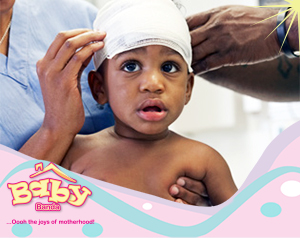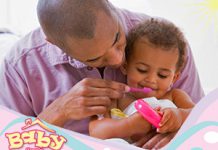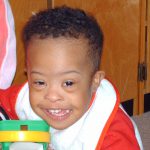For most new parents keeping their baby healthy and safe is a priority whether at home or outdoors. In most cases, they invest in the best safety gadgets to ensure that the baby grows in a space that prevents them from getting injured in any way. However, childhood emergencies cannot be avoided at all times requiring that they get information on first aid. Even so, getting trained or having critical first aid information should not be limited to parents but can include the nanny, grandparents or anyone that is in contact with the baby on a regular basis.
Although, information on first aid for babies can easily be found online or in different health groups, there are some that are important for parents in Kenya to grasp. These first aid tips may seem basic but can make the difference between life and death for your baby in an emergency situation. Some of the common injuries that may need parents to administer first aid appropriately and in good time include:
- Chocking
When the baby’s airway is blocked by an object, monitor their reflexes to see if they can cough it out. If they stop coughing and are having difficulty breathing, place them on your forearm and give them five gentle blows to the back, between their shoulder blades. If it is not working, turn them on their back and give chest compressions, at least five. Monitor for any positive responses from the baby and if none appear, make your way to hospital for emergency treatment. Read more on infant chocking here
- Burns
Babies often get burned either by hot liquids, chemicals or an electrical outlet. These burns may be minor or severe depending on the effects seen in the skin or affected area. Before administering first aid, remove the child from danger spot and flush the area using cool water (except for electrical burns) and cover with clean gauze. For burns that affect the body keep the child warm and take him to hospital for specialised treatment. Read more on infant burns and scalds here
- Cuts
Minor cuts that break the skin but do not bleed for long can be easily taken care of at home or on the road. Ensure that the area is cleaned well, patted dry and an antibacterial cream is applied on it. Cover the area with a bandage which can be changed daily to avoid infection. However, if the cut is deep or has an object implanted in the area, apply pressure using gauze to stop bleeding and visit the nearest hospital. Avoid plucking out the object as it can cause further damage to the affected area. Read more on cuts and scrapes here
- Poisoning
Babies are known to put anything and everything in their mouth which can be quite dangerous. If your child begins to vomit and you suspect they have taken something poisonous, turn them to their side so that they do not choke and a carry a sample to the hospital for analysis by doctors. In case, they are not showing any symptoms after taking a toxic substance look around to find the container and carry it with you to the hospital. Read more on infant poisoning here













